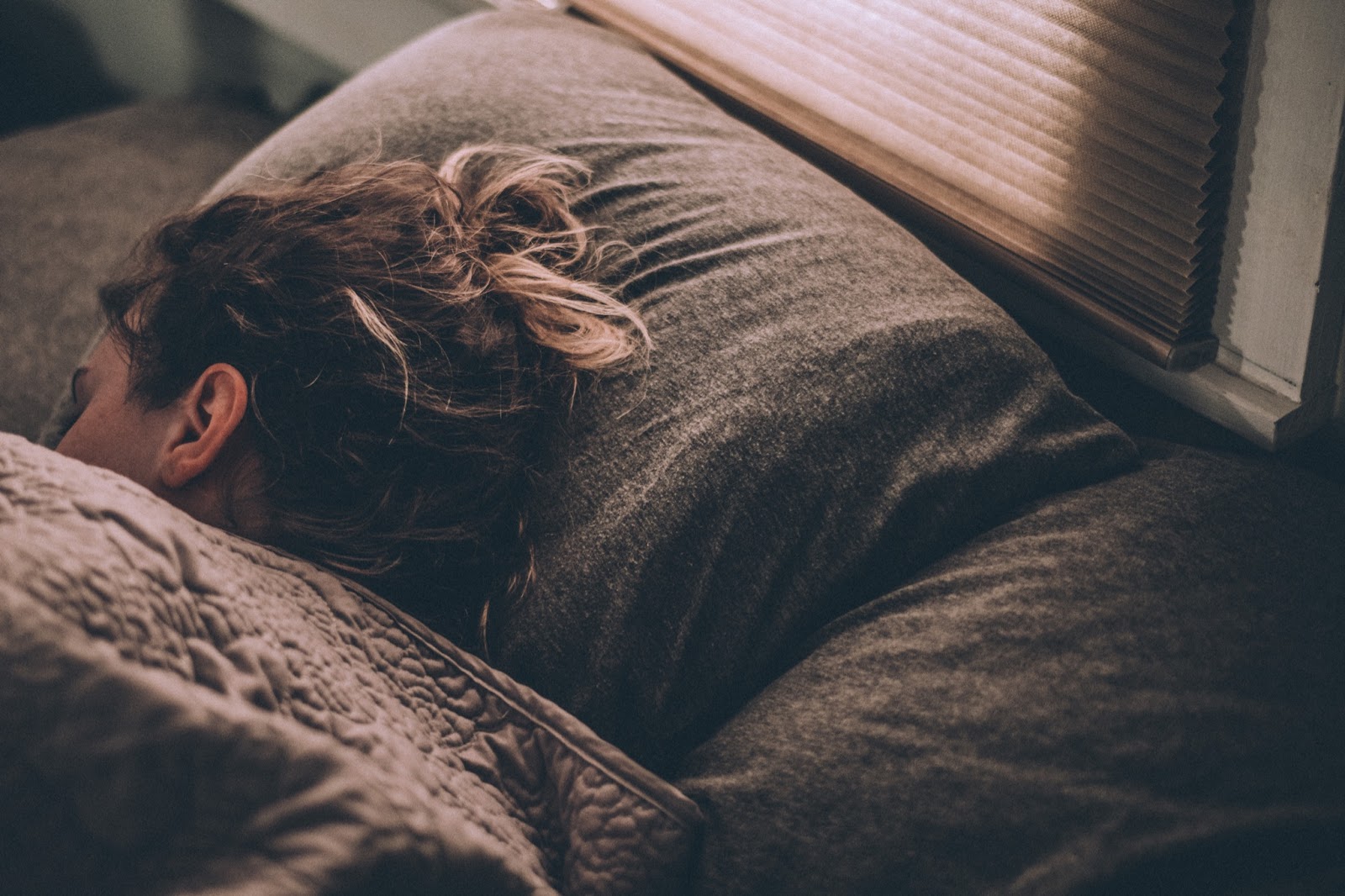How to Get More Deep Sleep

Author: Jonathan Warren

There really is nothing like waking up after a good night’s sleep and feeling rested, recharged and ready to tackle the day! Though we all know that we need at least eight hours of quality shut-eye per night, did you know that there are several different stages to your sleep cycle?
One of the most important stages of them all is ‘deep sleep’ – where your body slows down, relaxes and repairs. Here, we explain everything that you need to know about deep sleep and how you can get a bit more of it. Bonne nuit!
What are the stages of sleep?
Did you know that there are five key stages to your sleep cycle? And all five stages play a key role in ensuring you wake up feeling rested and refreshed? Fascinating, eh!
There are two phases of sleep: non-rapid eye movement (NREM) sleep and rapid eye movement (REM) sleep. Following us so far? NREM encompasses your first four stages of sleep, and REM your fifth stage. When you first drift off to sleep, you travel through four stages of NREM sleep, and then one stage of REM sleep. This cycle then repeats itself until you wake up.
Stage one and two are your lightest periods of sleep, where your heartbeat and breathing slow down and your body temperature drops. Stage three and four are often referred to as ‘deep sleep’. During these stages your brain waves slow and your body begins to promote muscle growth and repair (and you’ll likely be groggy and disoriented if woken up!). Stage five is your REM stage, where your eyes move quickly behind your eyelids and you’re most likely to dream.
How much deep sleep should you get per night?
All sleep stages are important when it comes to achieving a full and restful night’s sleep, but particularly your deep sleep stage (which occurs during stage three and four of NREM and REM). Sleep Foundation say that during these deep sleep stages, your body releases growth hormone and works to rebuild muscles, bones and tissue. It is also important for cognitive function and memory.
Everyone is different and we all require different amounts of sleep. However, according to Sleep Foundation, a healthy adult should get around 13%-23% of deep sleep each night. Babies and children require more deep sleep, as they’re still growing and developing.
How to sleep through the night without waking up
Though it may feel frustrating at times, waking up during the night for short periods of time is actually a perfectly normal part of transitioning between sleep cycles and is nothing to worry about. However, frequently waking up for longer periods, or being unable to fall back to sleep, may be symptomatic of a wider sleep problem – something we recommend discussing with your GP. Sleepstation say:
‘Contrary to popular belief, good sleepers don’t ‘sleep through' the night. At the end of each sleep cycle we all become fully alert for a short time. Most people won’t remember waking up, but we all do. When we become more aware of these awakenings and start to worry about them, they can become problematic. If you’re very aware that you’ve been awake for long periods during the night then you might have a sleep problem.’
How to get more deep sleep
Wondering how to increase deep sleep? If you’re waking up in the morning feeling tired and lethargic, it may be that you’re not getting enough of this crucial sleep stage. Luckily, we’re here with some tips and tricks to help you out…
1. Take time to unwind before bed
As tempting as it may be to check your emails or scroll on your phone before bed, creating a relaxing evening routine is key to a good night’s sleep, as it ensures that you feel settled and calm before catching up on your daily zzz’s.
To avoid that pesky blue light, we recommend banishing your phone from the bedroom for an hour or two before you head off to bed. To unwind your mind instead of doomscrolling, why not try a soothing evening bath, or a few gentle yoga stretches? Don a fresh set of pyjamas, spritz on some lavender-scented pillow spray, and you’ll be drifting off to a deep slumber in no time…
2. Create a comfortable sleeping environment
For a deep and restful night’s sleep, it’s important for your sleeping environment to be a sanctuary of calm and relaxation. From decorating your bedroom with gentle colours and plush upholstery to choosing an aroma diffuser with a soothing scent, your sleeping space should be a joy to spend time in.
To nod off in no time at all, it’s also important to choose an ultra-supportive mattress that moulds to your body shape – whether that’s a spongy memory foam or springy pocket sprung. Why not go the whole hog and invest in a new bed too? We recommend a cocooning winged bed or upholstered bed for a blissful night of deep sleep…
Cocoon yourself in comfort and calm with our Mia Winged Upholstered Bed Frame.
3. Rethink your diet and exercise routine
It’s well-known that a good exercise routine does wonders for our health and wellbeing, and can improve the quality of our sleep too. Whether you enjoy a run in the countryside, a trip to the gym, or a quick spin on the cross-trainer at home, finding some time during your busy routine to raise your heart rate is a sure-fire way to ensure that you sleep deeply.
However, exercise isn’t everything – your diet has a part to play too. A study from Columbia University has found that increasing our fibre intake (such as eating more wholegrains, pulses and a rainbow of fruits and vegetables) can help to increase the likelihood of deep and restorative sleep.
4. Cut out the caffeine
As tempting as it might be to enjoy that evening cup of builder’s tea, or a cheeky glass of vino, caffeine and other stimulants (such as alcohol and nicotine) could be the culprit if you’re struggling to get a good night of deep sleep. To ensure that you drift off quickly, try avoiding caffeine and other stimulants in the hours before you go to bed. Why not try a mug of herbal tea, warm milk or hot water and honey instead?
5. Consider a nighttime playlist
If you’re tossing and turning – and deep sleep is feeling elusive – a calming sleep podcast or gentle playlist is a classic way to switch off your brain and encourage you to drift off to sleep. But have you ever heard of pink noise? Though white noise is a well-known tool for helping babies and children to sleep soundly, pink noise (which represents sounds found in nature, such as rainfall, rustling leaves or crashing waves) has been proven to help older adults sleep better. Who knew?
Struggling to sleep soundly? A new mattress could be the answer!
From marshmallowy memory foam and latex, to supportive and springy pocket sprung, take a look at our full collection of mattresses to find a design that suits you.



